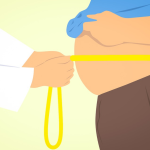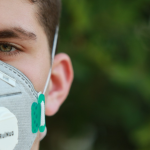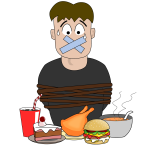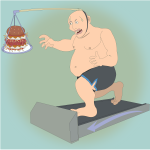In the ongoing battle against obesity, whether size matters takes on a new dimension regarding snacks. While discussions often center around nutritional content and dietary habits, the impact of portion and unit size tends to be overlooked. Yet, these seemingly insignificant factors can significantly influence our daily caloric intake.
obesity
A coalition of public health groups has released an "Obesity Bill of Rights" meant to challenge "outdated thinking" about unhealthy weight gain, and to expand access to health care. It's a well-meaning effort built on faulty assumptions and aimed at the wrong audience.
The blockbuster weight-loss drugs Wegovy and Ozempic have helped many patients rapidly slim down. But these powerful pharmaceuticals could have unintended consequences we may not be ready for. Meanwhile, what motivates people to wear masks? Post COVID, researchers are finally beginning to find some answers.
Wegovy and Ozempic, both GLP-1 agonists, have taken the world by storm, providing a simple way to lose weight without changing our lifestyle. A new report in Science helps us understand what we do not know: the known unknowns of obesity. Let me summarize.
The International Agency for Research on Cancer's (IARC) conclusion that the sweetener aspartame "possibly" causes cancer is ... definitely stupid. Meanwhile, you can eat a diet consisting of 91 percent "ultra-processed" food and be healthy. So says a new study. Let's take a closer look.
The American Medical Association claims the body mass index (BMI) is "white supremacist" medicine, and the CDC says men can breastfeed babies. The public health establishment seems to have lost its grip on reality. How did this happen?
A recent study linking marijuana use to schizophrenia attracted widespread attention. Now that the excitement has died down, let's take a closer look at the science. How does Pfizer's weight-loss pill compare to Ozempic, the obesity treatment beloved by celebrities the world over?
The two long-term drivers for weight loss and control are your basal metabolic rate, the number of calories you burn while your carcass is at rest, and your muscle tissue’s ability to perform and sustain physical activity for extended periods moving your carcass. Both are dependent on the amount of muscle tissue you have developed through conditioning or granted through genetics. So, before you decide to withdraw from your 401K to pay for your hit of Wegovy or Ozempic or any other miraculously pitched expensive weight loss drug, you need to consider some basic physiology.
Can we agree that whatever of the multifactorial causes of obesity you emphasize, obesity results in other health-related problems? Can we also agree that many of those multifactorial causes are present in childhood? Then doesn’t screening for obesity and early intervention make sense; that an ounce of prevention is worth a pound of cure?
The American Academy of Pediatrics (AAP) has drawn fire for issuing new recommendations designed to reduce childhood obesity. The AAP's critics are deeply confused.
The obesity epidemic enters its second century
Rise and shine – very early edition
Segmented sleep?
Deaths of despair, loneliness, and community
By now, you have probably seen the headlines asserting that some 13% of Americans have a food addiction to “highly-processed foods.” That number is a result of a poll – not an objective study – but this spotlight provides an opportunity to discuss what we know – and don’t know – about food addiction.











